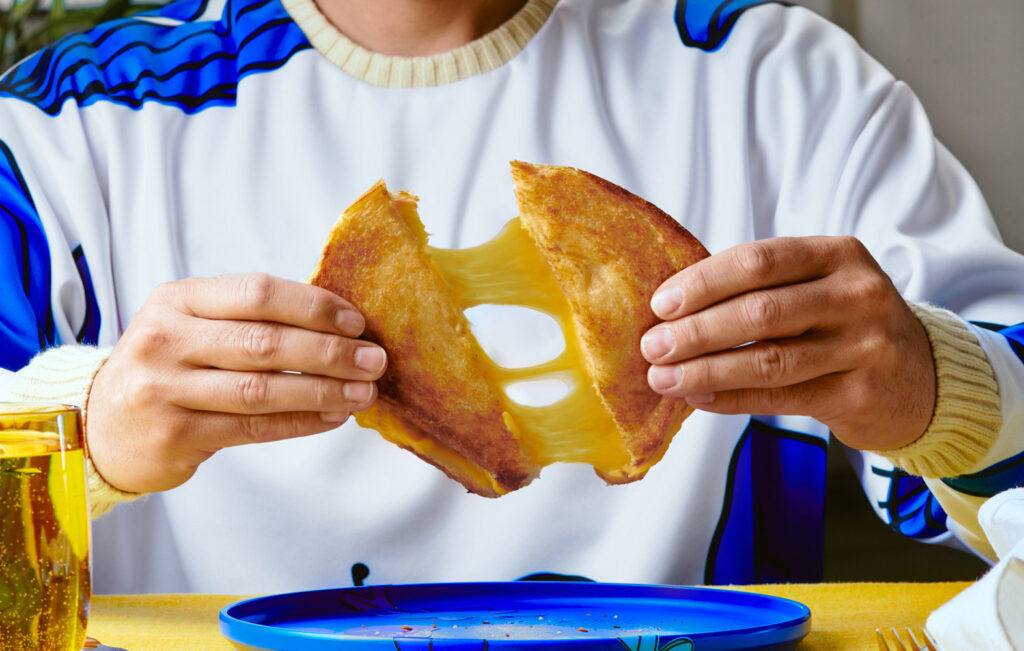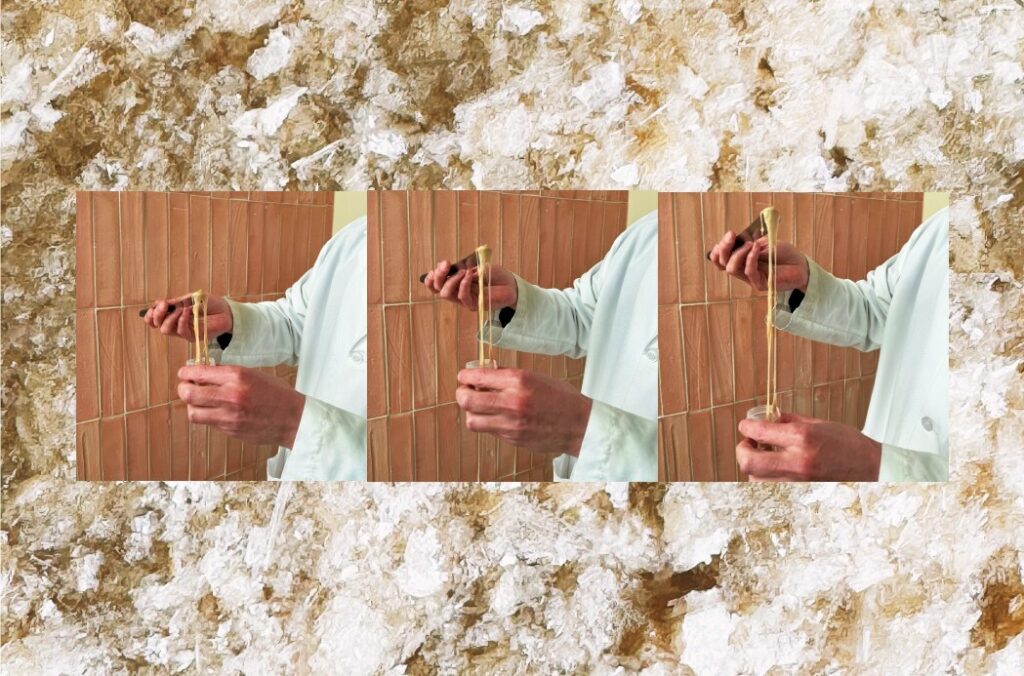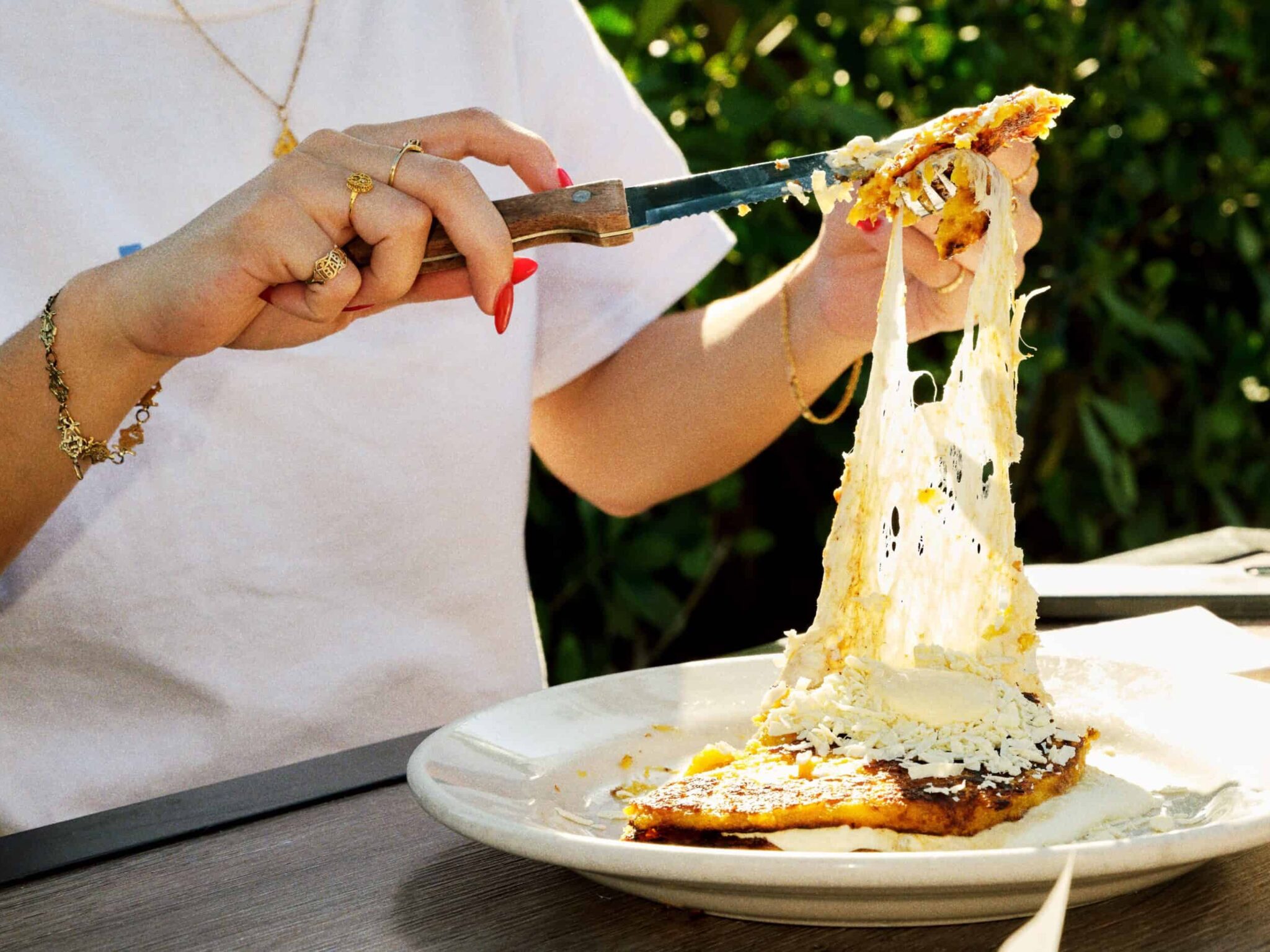Nobell Foods: Molecular Farming Startup Rebrands as Alpine Bio, Secures 10th Patent & Targets Mozzarella Launch for 2025
5 Mins Read
Molecular farming startup Nobell Foods, which is producing animal-free cheese from soy-derived casein proteins, has rebranded to Alpine Bio and secured a new patent for dairy proteins.
San Francisco-based Nobell Foods will now operate as a division of the renamed company, Alpine Bio, which now has an extended remit with 15 proteins that can be expressed in a range of different plans through molecular farming.
The company has secured its 10th patent in the US for recombinant milk proteins, strengthening its IP portfolio and expanding the possibilities of its technology. “While Nobell Foods makes sense as a consumer brand, it is not enough to convey the power of our platform,” founder and CEO Magi Richani told AgFunderNews. The new name is a callback to the startup’s initial moniker, Alpine Roads.
Backed with over $100M in investment, including by the likes of Bill Gates and Robert Downey Jr, Alpine Bio will continue to work on commercialising its animal-free cheese, which is made using casein protein derived from genetically engineered soybeans.
“Today we celebrate the breakthroughs our company has made over the last few years to reimagine the future of food in a way that positively impacts the climate, agriculture and our food system at large,” said Alpine Bio founder and CEO Magi Richani. “This milestone not only reflects our strides in science-backed technology, but also brings us closer to delivering a sustainable and delicious product to market.”
Molecular farming makes casein production more effective

Casein is the main protein found in dairy, comprising 80% of its protein content. It’s known for its emulsifying properties, preventing water and fat from separating and providing cheeses with their melty and stretchy attributes. It’s an element whose absence is a key pain point for plant-based cheeses, whose texture needs to be spot-on for consumers to want to eat it.
Nobell Foods opts to produce casein from soybeans using molecular farming, which has been labelled the fourth pillar of alternative protein by industry think tank the Good Food Institute. The tech has some key differentiators from cultivated or precision-fermented proteins: here, plant cells (not animals or microbes) are modified to replicate animal proteins, which are harvested from leaves or other plant tissues.
Molecular farming also presents a solution to the cost and scalability challenges of the others, as it doesn’t need expensive bioreactors to produce large amounts of ingredients – instead, the plants themselves are the natural bioreactors. Alpine Bio recreates the genetic code for casein in soybean seeds, which evolve into plants that produce casein identical to the protein found in dairy.
In milk, there are four kinds of casein proteins, which fold into a spherical structure known as a micelle, where they are suspended in a highly hydrated solution and bound together with minerals like calcium. Microbes can only make one type of these proteins at a time, but plants can be gene-edited to produce more of them concurrently.
“There’s no technical limitation on making all of them at once – the question is, does that get you the best product?” noted Richani. “We have done a lot of work on isolating individual caseins, understanding their functionalities independently and in different combinations, and we’re currently looking at producing two of them together.”
She explained that soybeans offer the most cost-competitive option for producing its casein. “Soy is a commodity crop that has been optimised for maximising protein with on average 35% protein by weight, plus there are about 90 million acres grown per year in the US, so that’s a lot of farmers we can work with plus a huge infrastructure for processing soybeans, both for removing the oil and processing the [solid matter] into purified ingredients like protein isolates,” she explained.
Alpine Bio aims to launch mozzarella in 2025

The latest patent protects Alpine Bio’s recombinant milk protein production tech, which enables high and consistent creation of these proteins in plants. The startup says these significantly outperform the first-generation expression of casein and bridge the price gap between the resulting animal-free products (which are also covered by the patent) and their conventional counterparts.
“We have been developing this technology since 2016 and we have accumulated a lot of IP, so our portfolio is very robust, meaning anyone making these proteins in plants is going to have to deal with our IP portfolio at some point,” Richani said. “And we’re not just talking about soybeans, but any plant system producing casein, so our claims are pretty broad.”
The development would be closely watched by players like Israel’s Finally Foods and New Zealand’s Miruku, startups that – albeit much younger – are also exploring casein production via molecular farming. Other companies leveraging plants to recreate identical animal proteins include Moolec, Mozza, PoLoPo and IngredientWerks, while Tiamat Sciences, Bright Biotech and ORF Genetics are among those developing growth factors for the same.
Alpine Bio has been marketing its cheese as an animal-free offering for climate-conscious cheese lovers, rather than another alternative for vegan consumers. This was evident in its Pizza Futures campaign from last year, when it produced a magazine to highlight the impacts of climate change on foods like cheese, wheat and tomato, and how it would affect pizza in the coming years.
“Cheese is one of the most loved foods in the modern diet, and yet it is one of the worst offenders in terms of its climate impact,” said Chris Rivest, partner at Alpine Bio investor Breakthrough Energy Ventures. “Magi and her team have developed a transformative way to produce dairy-identical proteins in plants to create stretchy, gooey, delicious cheese that consumers love, but made from plants—it is simply amazing.”
The first Nobell Foods cheese will be a mozzarella, for which Alpine Bio will host internal tastings this year, with public events planned for 2025. The company is in the process of obtaining a self-affirmed Generally Recognized as Safe (GRAS) certification in the US, with subsequent plans to file for GRAS determination to the FDA.
A handful of other producers are working on recreating casein globally. New Culture (US), Change Foods (Australia/US), Fermify (Austria), Zero Cow Factory (India) and Standing Ovation (France) are all using precision fermentation, while New York-based Pureture is making yeast-derived vegan casein via liquid fermentation.




